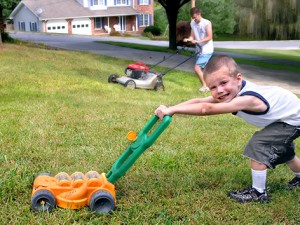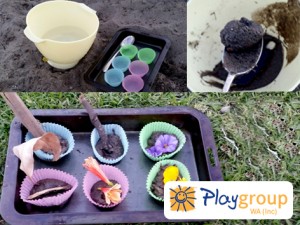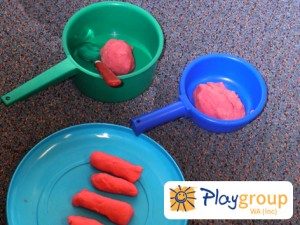Playing house – Child
 Playing house gives children an opportunity to practice adult roles, solve problems and act out feelings they may not yet know how to express in words. This is important pretend play for both boys and girls.
Playing house gives children an opportunity to practice adult roles, solve problems and act out feelings they may not yet know how to express in words. This is important pretend play for both boys and girls.
Did you know?
Talking aloud to themselves or their toys is a way children practice language, expand and develop their play plans, and express ideas and emotions using words. They may be embarrassed and stop if they think an adult is listening or watching.
Add language
If you are included in their play, keep the conversation going by making comments and asking occasional open questions that require some thinking or reasoning e.g. “That’s a very hot drink”, “Find one that can….”, “Where should the ….. go?”, “How should I make a …..”, “What should we do with… ?”
Variations
Supervise and assist if invited but allow your child to choose the drama, be the director and play out the scene in their own way. Watching quietly from the sidelines can help you understand how your child may be feeling and understanding their world. Try not to laugh or interrupt.
Safety
As your child’s independence increases be sure to discuss which activities are still not safe to do in the real kitchen.
Across the ages
All the activities listed on our “Play Ideas” page can be applied across different age groups. See how playing house can be fun for babies, toddlers,and playgroups.
Activities listed under “child” are suitable for children 3 years and older. Children of this age enjoy more complex activities where they can develop their skills and use their imagination while playing with friends.



